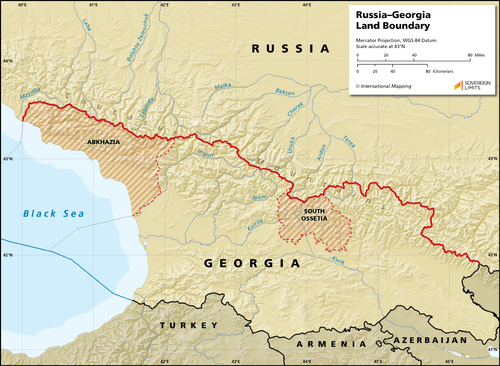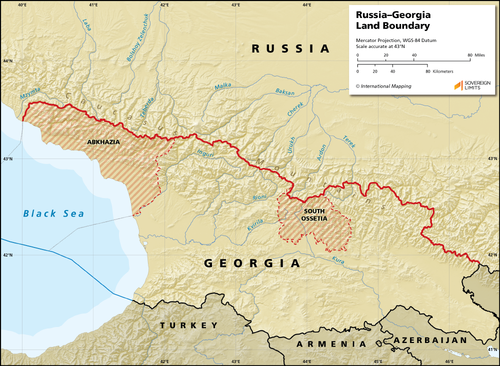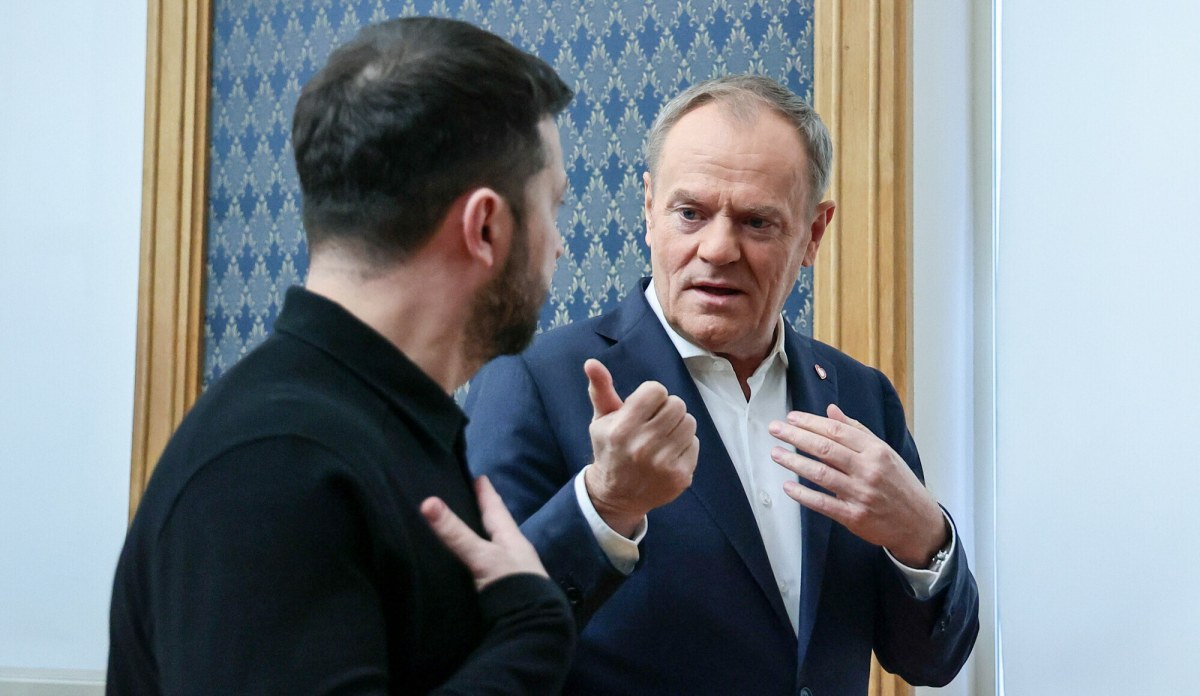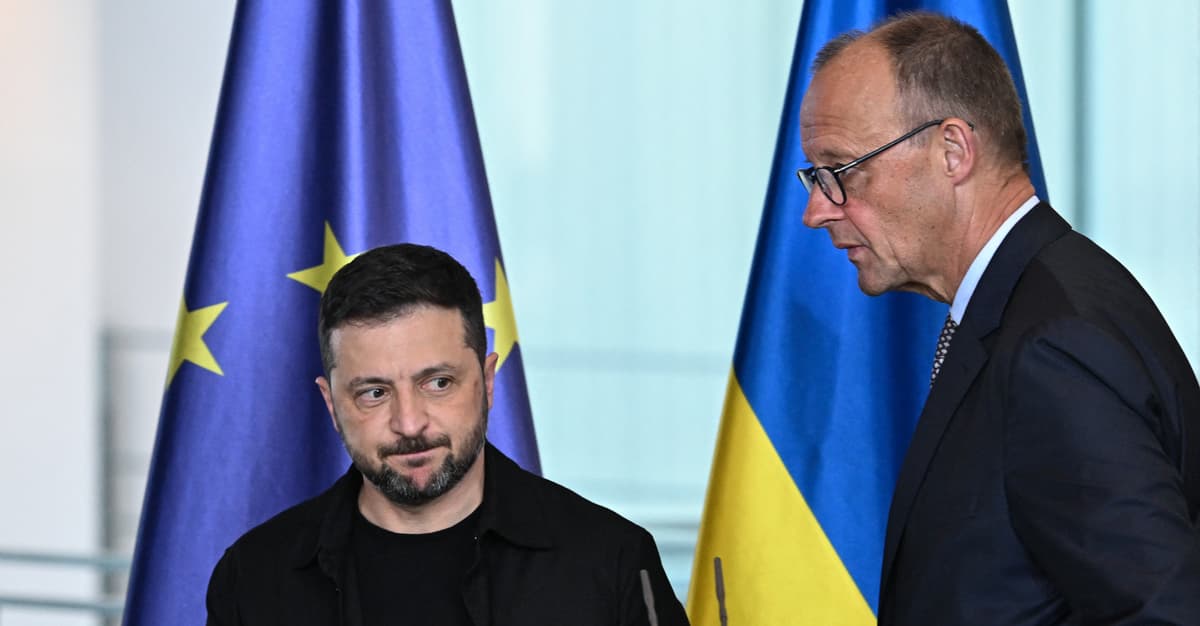
White House 'Deeply Troubled’ As Georgia Enacts Law To Thwart NGO 'Interference’
Defying large domestic protests and condemnation from the United States and other Western governments, the Republic of Georgia’s parliament on Tuesday adopted a „foreign agents” law that would impede foreign nongovernmental organizations’ (NGOs’) ability to operate in the country — and put Georgia’s European Union and NATO ambitions in jeopardy.
Looks like Soros’s NGOs don’t give up so easy on their control over Georgia
Let’s hope the government of Georgia doesn’t repeat the mistakes the Ukrainian government made in 2014 and takes care of these agitators before things get out of hand. pic.twitter.com/I9TVizIvQW
— Gabe (@GabeZZOZZ) May 14, 2024
Georgia’s president, Salome Zourabichvili, has vowed to veto the measure, but the parliament approved the law by a 84-30 margin, only only needs 76 to override a veto. After the law’s passage, Biden Press Secretary Karine Jean-Pierre told reporters:
„We’re deeply troubled by Georgia’s Kremlin-style 'foreign agents’ legislation...we have been outspoken about our concerns with the legislation, which runs counter to democratic values and would move Georgia further away from the values of the European Union and, let’s not forget, also NATO.”

Under the Georgia law, which is modeled after one adopted in Russia, organizations that receive more than 20% of their funding from outside the country would have to register as „agents of foreign influence,” under threat of fines. While Western governments officially scoff at the notion, NGOs have been a major vector of Western interference in foreign countries, up to and including regime change campaigns. NGOs played roles of varying significance in the so-called „Colour revolutions” in Georgia, Ukraine and Kyrgyzstan.
Ironically reinforcing the idea that the law would thwart foreign interference, the German Foreign Affairs Committee chairman Michael Roth and Lithuanian legislator Zhigimantas Pavillionis visited the protest rally outside the parliament — conjuring images of late US Senator John McCain and Sen. Chris Murphy joining anti-government protesters in Kiev as the Ukraine revolution gained momentum.
Michael Roth and Zhigimantas Pavillionis came to the protest rally in front of the Parliament#Georgia #NoToRussianLaw pic.twitter.com/dpBvXAzs1e
— Mtavari TV (@MtavariChannel) May 14, 2024
In a vivid display of the intensity of feelings over the law, fists flew in parliament earlier this year:
Georgia Parliament descends into fight as lawmaker get punch in face pic.twitter.com/LOZyK1oEmD
— BIGMANSHANE1710 (@BIGMANSHANE1) April 15, 2024
In recent months, Georgia has seen large protests against the law, with university students playing a major role. On Monday, 30 different colleges in the country saw students declare „strikes” and join demonstrations that decry „the Russian law.”
According to some polls, upwards of 89% of Georgians support EU membership to some degree — but, ironically, most of these polls seem to be organized by NGOs like the National Democratic Institute and International Republican Institute. Demonstrators frequently wave EU flags and on Tuesday played the EU anthem…
A historic moment in Tbilisi, as protesters and a European delegation listen to the EU and Georgian anthems, envisioning Georgia’s European future.
Truly remarkable pic.twitter.com/3bGmI9xZAC
— Katie Shoshiashvili (@KShoshiashvili) May 14, 2024
The protests have periodically erupted in violence, with police resorting to tear gas, water canons and clubs.
#Georgia: Teargas, water cannon, and riot projectiles used by police during huge anti-government protests tonight in Tbilisi. Protesters are now deploying makeshift barricades to defend themselves.
(: @gattsu17 on IG) pic.twitter.com/Ncj2TPunGm
— Popular Front (@PopularFront_) May 1, 2024
Riot police clash with protesters outside Georgian parliament
Read more: https://t.co/JR1ZHwxkyy pic.twitter.com/9tz8RqFb2a
— RT (@RT_com) May 15, 2024
European Commission spokesman Peter Stano echoed the White House’s warning about the law’s effect on Georgia’s potential EU membership, telling the Financial Times:
“[The law is] very dangerous for Georgia’s European ambitions. The expectations are very clear — if this piece of legislation is adopted, it will be a grave obstacle for Georgia when it comes to [its] European outlook.”
The parliament’s ruling coalition is led by the Georgian Dream party. On Tuesday, the party’s principal benefactor, Bidzina Ivanishvili, refused to meet with German and US officials who wanted to persuade him to intervene and prevent the vote from taking place.
What’s next? The parliament has 10 days to deliver the bill to Georgian President Zourabichvili. She then has two weeks to issue her promised veto, and then an override seems a certainty. Then things will get interesting as foreign-funded NGOs will have to start complying with the registration requirement or cease their activities. Don’t expect the US empire to sit on its hands…
Tyler Durden
Wed, 05/15/2024 – 11:05












